When choosing a checking account, you want one that is personally catered to your financial needs. You may want to consider any fees that may apply or be associated with having a low balance, whether or not the institution has locations close to you and how user-friendly the institution’s mobile app is. If you are in the market for a new checking account, keep a look out for accounts that offer sign-up bonuses for new customers, as it can hurt to build your new bank account even faster.
GOBankingRates took all of these factors into consideration when selecting the Best Checking Accounts of 2024 after reviewing numerous traditional and online banks. Checking accounts were analyzed and ranked based on the following:
- Total assets
- Number of branch locations
- Minimum deposit to open an account
- Monthly checking fee ratio
- Annual percentage yield, or APY
- Overdraft fee
- ATM withdrawals
- Daily balance requirements
- Customer service
- Mobile app ratings
Our Commitment to the Readers
Our editors are committed to bringing you unbiased ratings and information. Our editorial content is not influenced by advertisers. We use data-driven methodologies to evaluate financial products and companies, so that all are measured equally. You can read more about our editorial guidelines and the banking methodology for the ratings below.

20 Years
Helping You Live Richer

Reviewed by Experts

Trusted by Millions of Readers
Compare the Best Checking Accounts
Account
Best For
Minimum Deposit
Fees
Learn More
BMO Smart Advantage Checking Account
Best for Flexibility
$25 (min. opening deposit)
No monthly maintenance fee
Citi® Access Checking Account
Best for Mobile Check Deposits
$0
$5 monthly service fee, waivable
Truist One Checking Account
Best for No Overdraft Fees
$50
$12 monthly maintenance fee, waivable
GOBankingRates Best Checking Accounts

Best for No Fees or Minimums
Axos Bank Essential Checking Account
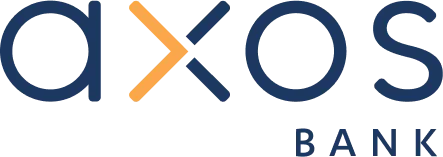
Minimum Deposit
$0
Fees
$0
ATM Network
91,000+
WHY WE LIKE AXOS BANK ESSENTIAL CHECKING ACCOUNT
With Essential Checking from Axos Bank, fee-free doesn’t mean feature-free. Despite this account having no minimums and no fees, even for overdrafts and non-sufficient funds, it offers plenty of perks that make it feel like a premium account. For example, it supports early direct deposit to get you your money sooner, which is always helpful, especially if you are living paycheck to paycheck. And you won’t need to use a separate app for peer-to-payments — you can send money to family and friends directly from your account.
It’s hard not to like a checking option that has no overdraft fees and unlimited ATM fee reimbursements. Axos Bank is a tried and trusted online banking option with modern features for its checking accounts but also a variety of other financial products.

Best for Flexibility
BMO Smart Advantage Checking Account
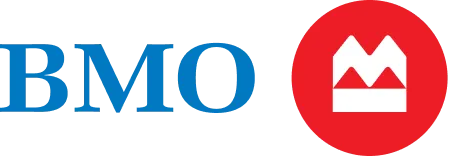
Minimum Deposit
$25 (min. opening deposit)
Fees
$0 monthly maintenance
ATM Network
40,000+
WHY WE LIKE BMO SMART ADVANTAGE CHECKING ACCOUNT
We like how BMO delivers on its better banking experience promise from start to finish when you open one of its checking accounts. Banking customers may choose from checking accounts designed to fit specific financial needs, like the Smart Advantage Checking, which received honors as one of GOBankingRates’ Best Checking Accounts of 2024.
The BMO Smart Advantage Checking Account features a $0 monthly maintenance fee and no minimum monthly balance, so you’re free to make deposits according to your schedule, not the bank’s. In addition, a full suite of digital tools let you bank whenever, and from wherever, you want, but in-branch banking is also available for when you prefer to meet face-to-face with a teller or banker.
However you choose to bank, you’ll also be able to enjoy ease of access to your funds with over 40,000 fee-free ATMs across the United States and receive personalized service from a dedicated customer service team invested in helping you make real financial progress.

Best for Mobile App
Capital One 360 Checking Account
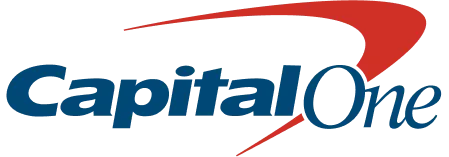
Minimum Deposit
$0
Fees
$0
ATM Network
70,000+
WHY WE LIKE CAPITAL ONE 360 CHECKING ACCOUNT
We like the Capital One 360 Checking Account for a flexibility that recognizes the needs of the modern, on-the-go customer by offering a top-notch mobile app that keeps you connected to your money. You can schedule online bill payments, lock and unlock your account and deposit cash at any CVS, Walgreens or Duane Reade by Walgreens store — all while your checking account earns APY.
The Capital One 360 Checking Account also enables seamless transfers to Zelle® from the Capital One mobile app, making it fast and easy to send your portion of the rent securely or pay your friend back for dinner before you’ve even left the restaurant. Unlike some of its competitors, Capital One doesn’t charge overdraft fees, and there are no minimum account balance requirements.

Best for Investors
Charles Schwab Bank Investor Checking Account
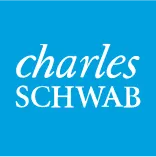
Minimum Deposit
$0
Fees
$0
ATM Network
No Charles Schwab ATMs, but unlimited ATM fee reimbursement available
WHY WE LIKE CHARLES SCHWAB BANK INVESTOR CHECKING ACCOUNT
We look to Charles Schwab Bank for innovative ways to build and grow wealth and it is always on the cutting edge. Its award-winning Investor Checking Account, ranked as one of GOBankingRates’ Best Checking Accounts in 2024, is a checking account quite literally built for investors.
What does that mean? This account is linked to a Schwab One Brokerage account, so with a single login banking customers enjoy all the benefits of a checking account combined with cash management solutions. You can quickly transfer cash between your brokerage and checking accounts and access it immediately to invest and trade the funds. As a bonus, there are no monthly service fees, overdraft fees or account minimums, which puts more money back into your wallet to invest.

Best for Mobile Check Deposits
Citi® Access Checking Account
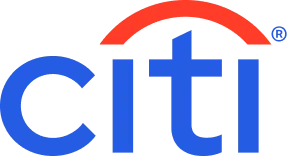
Minimum Deposit
$0
Fees
$5 monthly service fee
ATM Network
65,000+
WHY WE LIKE CITI ACCESS CHECKING ACCOUNT
You’ve got the kind of checking options designed to grow your money with Citi. With a spot in GOBankingRates’ Best Checking Accounts of 2024, Cit empowers customers to do more with their money. For many customers, that begins with the full-featured mobile app that makes it easy to deposit checks from anywhere, review account information and get notifications whenever there’s activity on the account.
Some of the other benefits that elevate Citi Access Checking Account include waiving a $5 monthly service fee for three months after opening the account, no overdraft fees, the ability to access cash quickly and safely at over 65,000 fee-free ATMs nationwide and $0 liability for unauthorized charges. Plus, your benefits keep growing with Citi Relationship Tiers. Open a checking account for instant benefits and continue receiving even more benefits when you combine account balances and enroll in family linking.

Best for Cash-Back Rewards
Discover® Bank Checking Account

Minimum Deposit
$0
Fees
$0
ATM Network
60,000+
WHY WE LIKE DISCOVER BANK CHECKING ACCOUNT
Discover® Bank, Member FDIC, only offers one checking account product, but that’s all you need when it’s a good one. You’ll receive an optional debit card with cash-back rewards. With Discover Cashback Debit, customers earn 1% cash back on up to $3,000 in debit card purchases each month.
The Discover Checking Account has zero fees — that means no monthly fee or balance requirements and no overdraft fees, either.
Another standout feature that makes Discover Checking one of the Best Checking Accounts in 2024 is the mobile experience. As an online-only bank, it’s fair to expect a seamless mobile banking experience, and Discover Bank delivers. The average Apple Store app rating is 4.9 while the average Android app rating is 4.5 — these are among the highest in the Best Checking Account category.
If you’re comfortable with an online-only checking account, Discover Bank stands out by making it rewarding, yet effortless, to bank via just your smartphone.

Best for ATM Reimbursement
EverBank Yield Pledge Checking Account

Minimum Deposit
$100
Fees
$0
ATM Network
80,000+
WHY WE LIKE EVERBANK YIELD PLEDGE CHECKING ACCOUNT
Fee-free banking loses some of its luster if you have to pay ATM fees, even if only on occasional withdrawals. EverBank’s Yield Pledge Checking reduces or eliminates those charges with $15 in ATM fee reimbursements each month — and unlimited reimbursements if you maintain an average balance of $5,000 or more.
Not only does Yield Pledge Checking protect your balance — it also helps to grow it with one of the highest interest rates available on a checking account.
Yield Pledge Checking does require a $100 minimum opening deposit. However, that’s a minor drawback because your account needs to be funded before you can use it anyway.

Best for a Free Account
FNBO Free Checking Account

Minimum Deposit
$0
Fees
$0
ATM Network
55,000+
WHY WE LIKE FNBO FREE CHECKING ACCOUNT
Just as the name suggests, FNBO Free Checking offers a fee-free experience across the board. There is no overdraft fee, no monthly service fee, no minimum deposit to open an account and no minimum balance requirement. That said, there is also no APY, so if you are looking for an interest-bearing account, this might not be your best option. However, if you are looking for a stress-free checking account experience, this is a great choice.
You’ll also get discounts on safe deposit boxes and exclusive rates when you open a savings, money market, CD or IRA account with FNBO.

Best for High Interest
SoFi Online Checking Account

Minimum Deposit
$0
Fees
$0
ATM Network
55,000+
WHY WE LIKE SOFI ONLINE CHECKING ACCOUNT
A couple of accounts that made GOBankingRates’ Best Checking Accounts pay interest, but SoFi’s Online Checking Account stands out for its competitive 0.50% APY on all checking balances — seven times the national average checking rate, and the highest rate of any bank on Best Checking Accounts list.
We also like SoFi’s Online Checking Account because SoFi rewards members for simply opening it and connecting it with direct deposit. Not only do new customers get a bonus just by opening a SoFi checking and selecting direct deposit, depending on your direct deposit amounts in the first 25 days, the bank offers additional cash bonuses. Plus, there is extensive ATM access through the Allpoint Network and no monthly maintenance fees.

Best for No Overdraft Fees
Truist One Checking Account

Minimum Deposit
$50
Fees
$12 monthly maintenance fee
ATM Network
3,000+
WHY WE LIKE TRUIST ONE CHECKING ACCOUNT
As the seventh-largest bank in the U.S., Truist operates at a truly broad scale. However, the bank remains in touch with the features that make a checking account accessible to everyday customers — like no overdraft fees. Truist One Checking is one of our Best Checking Accounts because customers will never be charged an overdraft fee or related charges.
Truist One Checking expands on its no-overdraft benefit with a feature not usually found in even the Best Checking Accounts. Eligible customers can receive an overdraft cushion with a $100 negative balance buffer.
Yes, there are maintenance fees attached to Truist One Checking, but there are plenty of ways to avoid them. Students under age 25 don’t have to pay fees and neither do people with linked small-business checking accounts. Maintaining a combined monthly average balance of $500 across all eligible Truist accounts or making $500 or more in total qualifying direct deposits per statement cycle will also get you out of paying those fees.
Research Methodology
To determine rankings GOBankingRates looked at the following factors from all banks (excluding neobanks): (1) total assets as sourced from the FDIC; (2) number of branch locations as sourced from the FDIC; (3) minimum deposit to open an account; (4) monthly checking fee ratio (percent the minimum to avoid fee compared to the monthly fee itself); (5) APY on the checking account; (6) overdraft fee amount; (7) the average mobile app rating between the Google Play (Android) and Apple stores. All factors were then scored and combined, with the lowest score being the best. Factor (1), (2) and (5) weighed 0.5 times, and factor (4) weighed 1.5 times. All data is up to date as of April 17, 2024; rates and fees are subject to change.
What To Know About Checking Accounts
A checking account is a secure place where you can keep your money for daily transactional needs, such as paying bills or setting up direct deposit for your paycheck. Most banks have multiple checking account options that you can choose from based on your daily financial needs. Whether it’s debit card purchases, wire transfers or deposits, checking accounts are typically the bank account used most often.
How Checking Accounts Work
A checking account is merely a holding place for money. Both incoming and outgoing transactions are processed electronically within the FDIC-insured account, generally overnight. Debit card and ATM transactions usually reduce your available balance immediately, whereas it can take up to a few business days for a paper check to clear, meaning the funds show up as deducted from your account.
Why You Should Open a Checking Account
Not only does putting your money in an FDIC-insured account provide you with financial safety, but it also grants you multiple points of easy access to your cash flow such as mobile apps, ATMs or in-person banking. When trying to reach your financial goals, it helps to have your funds organized and fees free from check cashing.
Checking Account Fees and Minimums
Checking account fees and minimums will vary depending on your bank or type of account. Here are a few key takeaways:
- Many banks charge fees for certain kinds of transactions or if you fail to maintain the required minimum balance of your checking account.
- Overdraft fees occur when you withdraw more money from your account than you have in your balance.
- Monthly service fees or monthly maintenance fees are often charged depending on the type of account. These can often be waived if you maintain a certain minimum balance or other requirements.
- ATM fees are often incurred when you use an ATM outside of your bank’s network. However, some financial institutions offer ATM fee reimbursements.
- Account holders will get a statement cycle report so they can see all of their transactions and fees for that period.
GOBankingRates conducted a poll and found that 28% of Americans have had overdrafts on their checking account in the past year. Not only that, 6% report that this is happen fairly often. You might want to consider a bank that offers low to no overdraft charges, if you’re part of that 6%.
How Much Money Should You Keep in a Checking Account?
It’s always important to keep enough money in your checking account to ensure you don’t incur any bank fees. Besides that, a good rule to follow is to keep enough money in your checking account to cover one to two months of living expenses in case anything unexpected happens, such as emergency medical care or job loss.
Once you’ve accounted for these expenditures, try and add another couple of months’ worth to your savings account to earn better interest.
Pros and Cons of Checking Accounts
Pros
- Easy access to funds — You can access funds held in a checking account at any time, and there are no limits to the number of withdrawals you can make.
- Security — Checking accounts can offer FDIC insurance, which means your funds are protected for up to $250,000. Even if the bank closes, your funds are insured.
Cons
- Low or no interest — While a checking account is a convenient place to store money for transactions, it is not the best type of account for growing your funds. These accounts typically pay little or no interest.
- Transferring money — Some payment platforms such as Venmo or PayPal make sending money to friends, family or businesses more convenient.
How To Choose a Checking Account
With so many checking accounts available, choosing the right one can seem like a Herculean task. But interestingly, 35% of people surveyed by GOBankingRates have considered changing banks recently over the last year. That points to the fact that many people are searching for something more or even better than what they have. If that’s you, simplify the process by analyzing your financial situation and prioritizing the checking account features that are most important for you. Here are some helpful tips:
- If you have a large amount of money to deposit, you might be able to access an account loaded with services from a major international bank for no monthly fee.
- If you aren’t quite ready to make a deposit but want to establish a checking account, you might want to look at online banks that still offer traditional services but don’t require a minimum balance to waive their monthly fees.
- Your choice may also be affected by how you use ATMs. If you travel a lot, for example, you might prefer a checking account that reimburses overseas ATM fees; if you only use in-network ATMs, you might not care about your bank’s ATM policy and gravitate toward one that offers local discounts, for example.
- Overall, your choice should provide you with the most amount of services that you will actually use at the lowest possible cost.
Alternatives to Checking Accounts
If you are debating what type of account is best for you, it is good to know how checking accounts compare to other types of bank accounts.
Checking Account vs. Savings Account
A checking account tends to be your daily transaction account that you can write checks from or link your debit card to for digital transactions. A savings account is where you store funds that you don’t need to access often, which helps with accumulating more money and earning interest.
Checking Account vs. Money Market Account
Most checking accounts don’t earn interest whereas money market accounts do accrue interest, typically at competitive rates. The interest earned in a money market account is tier-based and established by the amount of the account’s balance.
Checking Account vs. Prepaid Debit Card
The main difference between a checking account and a prepaid debit card is that a regular debit card is linked to your checking account and the funds within that account, whereas a prepaid debit card requires you to load money onto that card before use.
How Can You Open a Checking Account?
Checking accounts are easy to open — you just need to supply your personal and financial information and arrange your opening deposit, if one is required. Here are some typical requirements you’ll need to meet to open a checking account:
- Personal information needed to open a checking account: Name, address, birthdate, phone number, email address and Social Security number
- Documents needed to open a checking account: Government-issued ID such as driver’s license, state ID or passport
- Age required to open a checking account: Though it can vary from bank to bank, in general, ages 13 to 17 years old need their ID, or if they don’t have an ID, need both their birth certificate and Social Security card. They’ll also need an adult co-owner to open a checking account.
Recap of Best Checking Accounts
- Axos Bank Essential Checking Account – Best for No Fees or Minimums
- BMO Smart Advantage Checking Account – Best for Flexibility
- Capital One 360 Checking Account – Best for Mobile App
- Charles Schwab Bank Investor Checking Account – Best for Investors
- Citi® Access Checking Account – Best for Mobile Check Deposits
- Discover® Bank Checking Account – Best for Cash-Back Rewards
- EverBank Yield Pledge Checking Account – Best for ATM Reimbursement
- FNBO Free Checking Account – Best for a Free Account
- SoFi Online Checking Account – Best for High Interest
- Truist One Checking Account – Best for No Overdraft Fees
Daria Uhlig contributed to the reporting for this article.
FAQ
Although the basic idea behind a checking account can be simple to understand, there are still many common questions surrounding them, in part because there are so many different kinds. Here are answers to some of the most frequently asked questions about checking accounts.- What is the easiest checking account to get?
- Here are some of the easiest checking accounts to open:
- Chime®
- Capital One
- Revolut
- Current
- Wise
- Majority
- Here are some of the easiest checking accounts to open:
- What's the most money you should keep in a checking account?
- You should keep enough money in your checking account to cover one to two months of living expenses in case anything unexpected happens, such as emergency medical care or job loss. Once you've accounted for these expenditures, try and add another couple of months' worth to your savings account to earn better interest
- Do checking accounts earn interest?
- Though there are some banks that offer special checking accounts where you can earn interest, in general, most checking accounts do not. This is due to the fact that these accounts allow you to store money that you can spend immediately through checks, cash withdrawals or debit card transactions. There are some high-yield checking accounts, which are interest-bearing accounts with a high rate of return. To hold such an account you typically will be required to maintain a minimum balance, receive direct deposit into the account or have only a minimum amount of monthly transactions. The interest you earn on these accounts, as with most bank accounts, is taxable.
- Is your money safe in a checking account?
- As most banks are FDIC insured, your money is safe in a checking account or any other account with that bank as the amount you deposited is covered dollar-for-dollar. Typically this insurance covers the amount deposited and any interest you're owed up to $250,000.
- How many checking accounts can I have?
- In general, there is no limit to how many checking accounts you can have. However, applying for or having multiple accounts can cause issues when trying to open other accounts. If you do have multiple FDIC-insured checking accounts open, you should note there is a limit as to how much money you can store in each account.
- What is overdraft protection?
- Overdraft protection is when your bank has agreed to cover any overdraft that may occur for your checking account. There are typically certain fees or preset maximum amounts associated with this protection.
- Will a checking account build or hurt credit?
- As FICO scores only track the activity on your credit accounts, generally your checking account, or any bank account for that matter, will not impact your credit score.
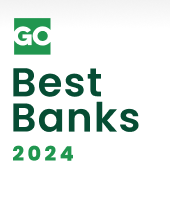


 Written by
Written by  Edited by
Edited by 












